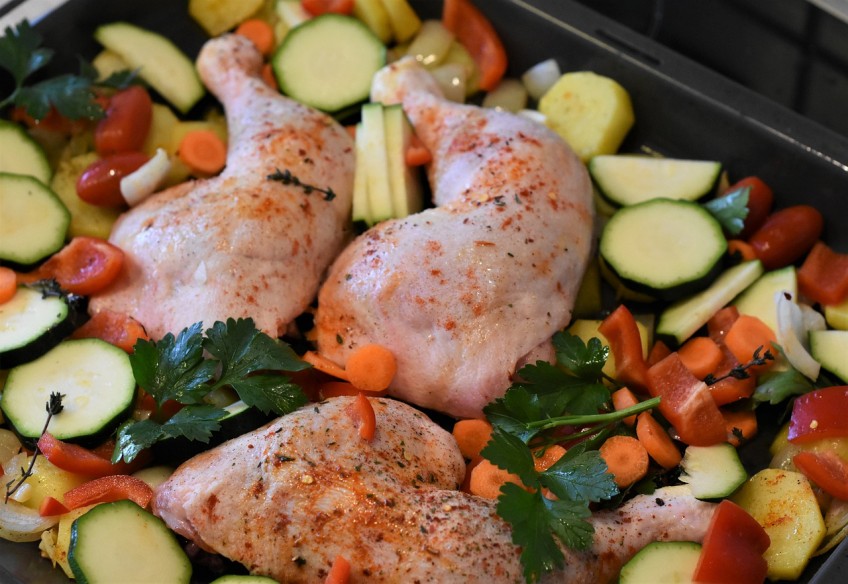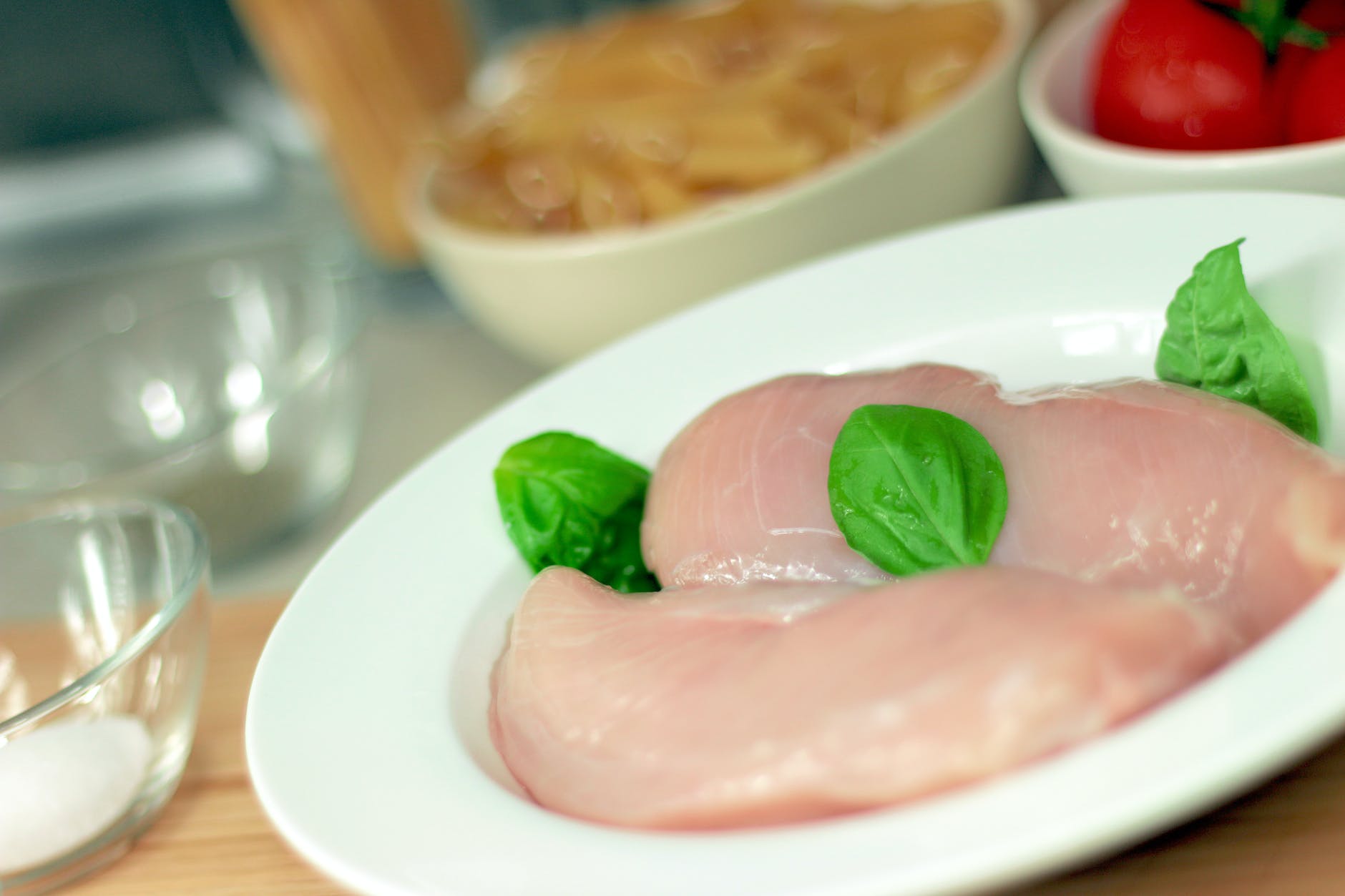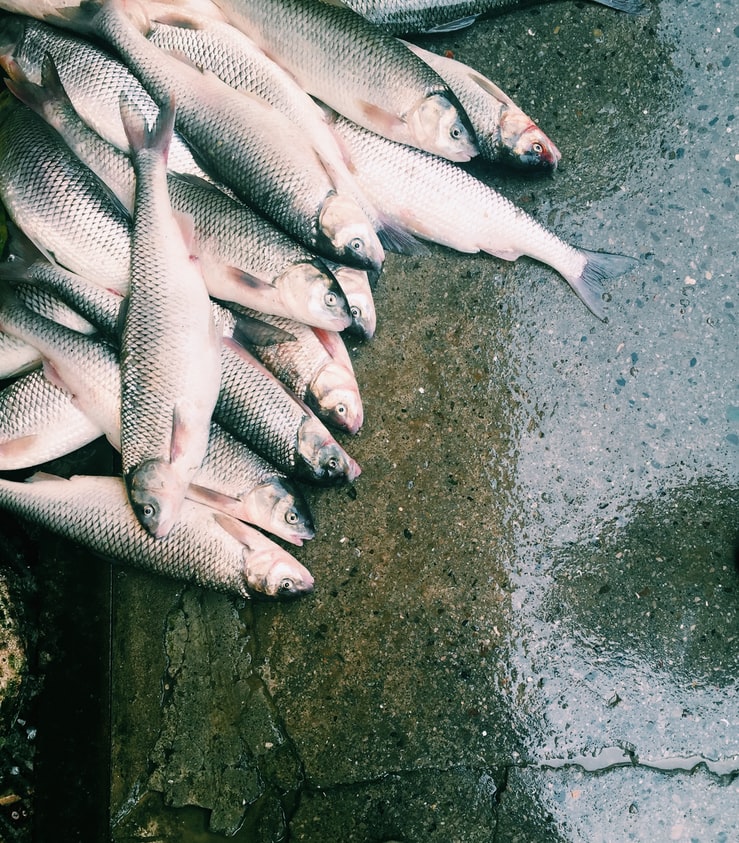To wash or not: Raw meat, mushrooms, eggs & more

It makes sense to want to wash the food you eat before cooking it. But the truth is, washing can affect the quality of some foods, or worse, promote the spread of bacteria and food poisoning.
Below, food prep and washing tips in the kitchen to take note of.

It might be tempting to rinse your poultry or meat, especially when they feel slimy and icky right out of the packaging. But unless there’s foreign matter on your meats, leave it to the cooking process to kill any bacteria.
Washing your meat can spread bacteria onto your hands, or the water might splash or drip onto the countertop, and kitchen equipment, and may cross-contaminate other food. According to the Agri-Food & Veterinary Authority of Singapore (AVA), it is also not necessary to rinse raw meat with salt and running water or soak raw meat in saltwater.
In the same vein, fish doesn’t have to be washed to minimise the risk of cross-contamination and food poisoning.
However, fresh shellfish like clams, mussels, and oysters should be rinsed or soaked in water – unless you want to chow down on sand and grit. To clean them, rinse under running water to remove loose sediment and discard those with broken shells.
Transfer shellfish to a pot of cold salted water for 20 minutes to half an hour. This forces them to release any grit within their shells. Lift them up and out of the water before cooking so the sediment remains behind.
On one hand, many chefs and experts say that mushrooms should not be washed since they absorb moisture like a sponge and this affects their taste and creates a rubbery texture when cooked.
One way to clean them is to wipe the mushrooms with a damp cloth, or if you absolutely have to, give them a quick dunk or rinse to loosen any debris, then immediately wipe them dry.
Cracking your head over whether to wash eggs?
Chicken eggs have the likelihood of carrying nasties like salmonella, but the good news is, they naturally have a protective coating that effectively guards against bacteria. Commercial eggs have also been cleaned with a special technique that doesn’t damage the coating.
According to an AVA spokesperson (Source: The Straits Times), washing eggs before refrigerating them isn’t recommended. This may remove the natural coating or cuticle of the egg, which aids the transfer of bacteria into it.
And yes, you’ll also want to keep your eggs refrigerated. This prevents salmonella bacteria which may be present in the eggs from growing to dangerous levels.
The label might state “pre-washed and ready to eat”, but is it really safe to eat?
It’s likely not harmful, having been washed with a mix of water and a food-grade sanitising agent. But if you’d like to play it safe or don’t like the idea of munching on chemicals, by all means, give them a wash. Soak the leaves in cold water so it doesn’t strip them of minerals, then run them through the salad spinner.
Since you don’t eat the skins, you don’t have to wash them right? Not really. When you’re piercing or cutting into fruits with inedible peels, you also run the risk of transferring bacteria to the edible flesh.
Especially if you’re intending to use citrus peels in your baking or cooking, it’s important to wash the fruit. Fruit producers may possibly apply a thin layer of wax after harvesting citrus fruit to keep them looking fresh, as well as protecting them during the bumpy transit from supplier to consumer.
You can remove the wax by scrubbing and rinsing it, or soaking it in hot water.
Chickpeas, cannellini, or black beans — chances are, you have canned beans in your pantry and they make great time-savers since their dried counterparts can take eons to be cooked.
But they also tend to come in a gooey liquid that is full of preservatives and sodium. While safe, you can cut down on sodium and preservatives by rinsing and draining them.
Thanks to your Asian parents (or the now-viral Uncle Roger), you probably know that white rice should be rinsed before cooking.

This article was first published in The Singapore Women's Weekly.